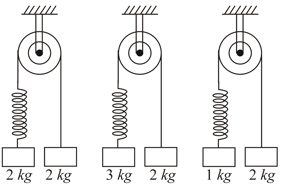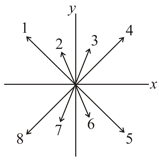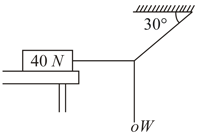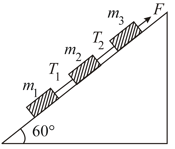Embibe Experts Solutions for Chapter: Laws of Motion, Exercise 10: Exercise (Assertion & Reason)
Embibe Experts Physics Solutions for Exercise - Embibe Experts Solutions for Chapter: Laws of Motion, Exercise 10: Exercise (Assertion & Reason)
Attempt the practice questions on Chapter 5: Laws of Motion, Exercise 10: Exercise (Assertion & Reason) with hints and solutions to strengthen your understanding. Beta Question Bank for Medical: Physics solutions are prepared by Experienced Embibe Experts.
Questions from Embibe Experts Solutions for Chapter: Laws of Motion, Exercise 10: Exercise (Assertion & Reason) with Hints & Solutions
The same spring is attached with , and blocks in three different cases as shown in the figure. If , and be the respective extensions in the spring in these three cases, then:-

Two forces and act on a point object. In the given figure which of the eight vectors represents and ? What is the magnitude of the net forces?

Two weights w1 and w2 are connected by a light thread which passes over a light smooth pulley. If the pulley is raised upwards with an acceleration equal to g, then the tension in the thread will be :-
Three blocks of masses , and are connected by massless strings and pulled by a force on a frictionless surface as shown in the figure below. The tension in the first string is .

If the point of application of is changed as given below, the values of and shall be:-
In the figure given, the system is in equilibrium. What is the maximum value can have if the friction force on the block cannot exceed ?

Three blocks, of masses m1= 2.0, m2 = 4.0 and m3 = 6.0 kg are connected by strings on a frictionless inclined plane of 60°, as shown in the figure. A force F = 120 N is applied upwards along the incline to the uppermost block, causing an upward movement of the blocks. The connecting cords are light. The values of tensions T1 and T2 in the cords are :

Assertion: In the inertial frame centrifugal force can’t appear.
Reason: In the uniform, circular motion centripetal force will counterbalance the centrifugal force.
Assertion: A quick collision between two bodies is more violent than a slow collision, even when the initial and the final velocities are identical.
Reason: Because the rate of change of momentum which determines the force is greater in the first case.
